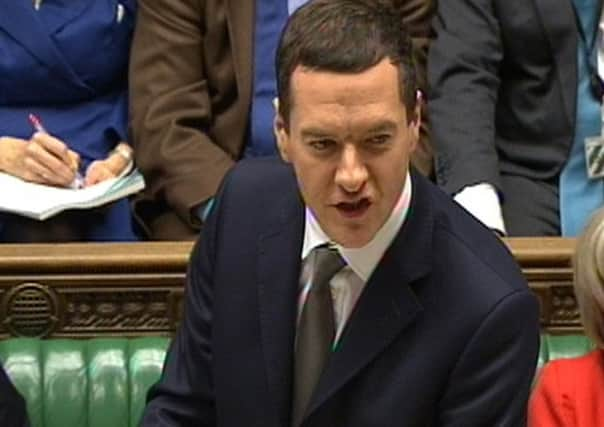Building societies say new tax will hit lending to home buyers


George Osborne announced plans in the Budget to charge lenders eight per cent on profits above £25m. The new tax will replace the bank levy which is being virtually phased out.
At the moment only the banks and Nationwide, the UK’s biggest building society, pay the bank levy, but six building societies will be caught out by the new tax.
Advertisement
Hide AdAdvertisement
Hide AdYorkshire Building Society, the UK’s second biggest building society, said the tax will cost it £15m a year and the six societies together will contribute more than a third of the increased revenue the Chancellor will raise from the tax.
The British Banking Association (BBA) estimates that the banks and the six societies could pay a further £2bn in tax when the changes are introduced. Yorkshire estimates that the bill will be around £1.6bn.
Skipton, the fourth biggest society said the tax will cost it £6m and Leeds, the fifth biggest society, said it will take a £5m hit. The other two affected societies are Coventry and Principality.
The Institute for Fiscal Studies has said the new bank surcharge is flawed.
Advertisement
Hide AdAdvertisement
Hide AdAndy Caton, Yorkshire’s chief treasury and corporate affairs officer, said: “This new tax has been roundly condemned by the likes of the Institute for Fiscal Studies as being badly targeted and fundamentally flawed.”
He added that it will hit the mutual building societies and other challengers to the big banks disproportionately, as well as undermining the Government’s desire to improve competition and diversity in the market.
“The bank levy was put in place as a response to the cost borne by the taxpayer in bailing out the banks during the financial crisis. That will now be halved over the next five years and replaced by the new surcharge which is imposed on a much wider group of providers,” he said.
“Overall the Chancellor is expecting to raise an additional £1.6bn over the life of this Parliament – of which the top six building societies will be contributing well over a third of that figure. That is unfair and regressive.
Advertisement
Hide AdAdvertisement
Hide Ad“It is a tax on member value and a sop to the likes of HSBC who threatened to pull out of the UK because of the impact of the bank levy.
“I think the Chancellor should have followed the logic of his own retail ring-fencing proposals and applied the tax to the riskier parts of the banking system, the investment banks.”
Skipton’s chief executive David Cutter said: “It’s disappointing that building societies are being lumped in with the banks and are once again being caught up in the political collateral damage to address the banking sector.
“Without seeing the detail of the finance bill – due next week – we anticipate it will cost Skipton £6m per annum. Ultimately this will impact our customers and investment decisions.”
Advertisement
Hide AdAdvertisement
Hide AdLeeds’ finance director Robin Litten added: “The existing bank levy is currently applied to institutions with over £20bn of chargeable liabilities, and was intended to generate a contribution from banks to reflect the potential cost to taxpayers should they fail.
“It’s a shame the new surcharge will be applied to building societies who are financially strong and typically operate lower risk business models than the larger, more complex banks.”
Robin Fieth, chief executive of the Building Societies Association, said the new tax is unexpected, unwelcome and will have an impact on consumers.
“Costs are already rising steeply so taking an extra £126m a year out of the money used for product and service development and as capital to support lending will have an effect. To illustrate, if this money had instead been available to support mortgage lending it equates to £4bn to fund aspiring homeowners,” he said.